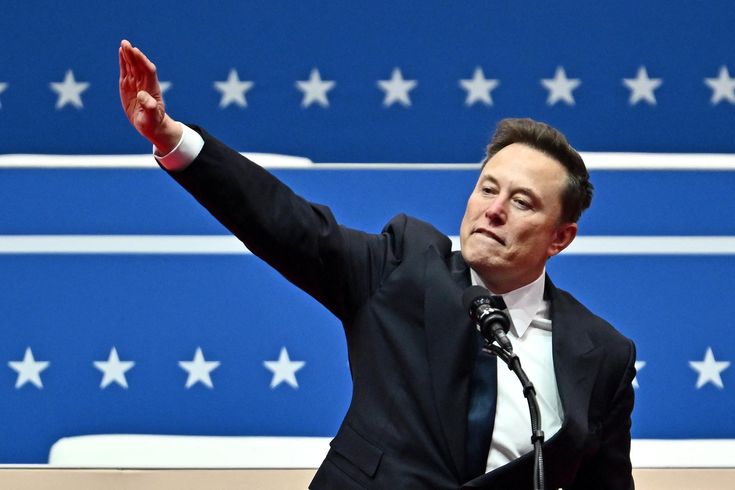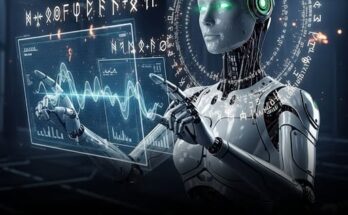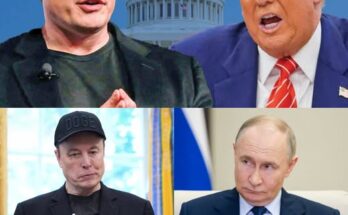Automation is quietly reshaping daily life, from self-serve kiosks at fast food restaurants to cashierless checkouts in retail stores. Robots and artificial intelligence (AI) are handling tasks once performed exclusively by humans, signaling a shift that could redefine the very nature of work. Billionaire entrepreneur Elon Musk has long warned about the profound impact of automation on employment, arguing that as AI replaces jobs at an accelerating pace, universal basic income (UBI) will become not just beneficial, but essential.
Musk first made this prediction in 2017, stating that automation would eventually make traditional employment obsolete. By 2024, he took the idea even further, suggesting that a “high universal income” could be necessary to ensure economic stability and eliminate scarcity. However, Musk does not see the economic implications as the most significant challenge. Instead, he warns that widespread automation could lead to a crisis of purpose, as people struggle to find meaning in a world where their labor is no longer required. “If you’re not needed, do you feel useless?” he asks, highlighting the psychological ramifications of an AI-driven society.

The Rise of Automation and AI: A Paradigm Shift
Automation has steadily increased over the past few decades, transforming industries like manufacturing, logistics, and customer service. Today, AI advancements are accelerating this trend, impacting even white-collar professions such as law, medicine, and software development. Technologies like ChatGPT, Tesla’s self-driving systems, and AI-powered diagnostic tools are examples of how intelligent automation is pushing the boundaries of what machines can do.
According to a 2023 report from the World Economic Forum, automation is expected to replace nearly 85 million jobs globally by 2025, while creating 97 million new roles in AI-related fields. However, not all displaced workers will easily transition into these new positions, particularly those without technical skills. Musk has warned that this shift could lead to widespread economic displacement, exacerbating inequality if policies are not implemented to support affected populations.
Universal Basic Income: A Solution to Job Loss?
Universal Basic Income (UBI) is a proposed economic system in which all citizens receive a guaranteed sum of money from the government, regardless of employment status. The idea is to provide financial security, allowing individuals to pursue education, entrepreneurship, or creative endeavors without the immediate pressure of making ends meet.
Musk believes that as automation increases, UBI will transition from being a theoretical concept to a necessary reality. “There will be fewer and fewer jobs that a robot cannot do better,” he stated in an interview. “With automation, the future will likely have universal basic income or something similar.”
Several governments and private organizations have already begun experimenting with UBI pilot programs:
- Finland (2017-2018): A government-funded trial provided 2,000 unemployed citizens with €560 ($635) per month, resulting in improved well-being and reduced stress.
- United States (Stockton, CA, 2019-2021): The Stockton Economic Empowerment Demonstration (SEED) provided $500 monthly to low-income residents, showing increased financial stability and employment rates.
- Canada (Ontario, 2017-2018): A UBI pilot aimed at providing low-income individuals with up to $16,989 annually before it was canceled due to political shifts.
Despite these promising results, critics argue that UBI is expensive and could discourage work. Musk, however, believes that automation-driven economic productivity would generate enough wealth to fund such programs. He envisions a world where “AI and robots create so much abundance that we can afford a much higher universal income.”

The Psychological Challenge: Finding Meaning in an AI World
While UBI could alleviate financial concerns, Musk highlights another problem: the human need for purpose. Throughout history, work has been a fundamental source of identity and fulfillment. People derive meaning from their jobs, whether through creativity, social interaction, or a sense of contribution to society. If AI eliminates the majority of jobs, many may struggle with self-worth and existential questions.
Musk has repeatedly posed the question: “If you’re not needed, do you feel useless?” This concern reflects broader societal issues, as seen in studies linking unemployment to increased depression, anxiety, and even mortality rates. Without work, individuals may feel disconnected from society, leading to new social and mental health challenges.
Potential Solutions: Reimagining Work and Purpose
If automation displaces traditional employment, societies may need to redefine work and purpose in ways beyond economic contribution. Potential solutions include:
- New Forms of Employment: While AI will replace some jobs, it could create new ones in unexpected fields. For example, the rise of the internet led to jobs like social media managers, app developers, and digital marketers—roles that didn’t exist a few decades ago.
- Creative and Cultural Renaissance: With financial security through UBI, individuals could focus on art, music, research, and philosophy, leading to a renaissance of human creativity.
- Increased Focus on Community and Social Roles: Societies might shift toward valuing volunteer work, mentorship, and caregiving, allowing people to contribute meaningfully outside of traditional employment.
- AI-Assisted Personal Fulfillment: Instead of replacing human effort entirely, AI could act as a tool for personal growth, helping people explore new skills, engage in lifelong learning, or develop businesses with AI-driven assistance.
Economic Feasibility: Can UBI Work?
One of the biggest concerns regarding UBI is funding. Opponents argue that providing every citizen with a guaranteed income would require massive government spending, potentially leading to higher taxes and inflation. However, Musk suggests that automation itself could generate the necessary wealth. With AI handling production and services, the cost of goods could plummet, making a higher universal income sustainable.
Several funding models for UBI include:
- Taxing AI and Automation: Companies benefiting most from automation could be required to contribute to a UBI fund.
- Wealth Tax on Billionaires: Given the massive wealth concentrated in a few hands, some propose a tax on ultra-high-net-worth individuals to support income redistribution.
- Carbon Tax or Resource Dividends: Some suggest funding UBI through environmental taxation, charging companies for resource consumption and emissions.
- Cryptocurrency-Based UBI: Some advocate for a blockchain-powered universal income, where digital currencies provide decentralized financial support.
The Role of Governments and Corporations
Governments and corporations will play a crucial role in shaping the future of work and income distribution. While Musk champions technological innovation, he also acknowledges that businesses should take responsibility for societal well-being. His companies, such as Tesla and SpaceX, continue to create high-tech jobs, but Musk recognizes that AI will eventually disrupt even these industries.
Governments will need to adopt policies that balance economic growth with social stability, ensuring that automation benefits everyone rather than widening inequality. Policymakers could implement progressive UBI systems, adjusting payments based on individual needs rather than offering a fixed amount to all citizens.
Conclusion: The Future of Work in an AI-Dominated World
Elon Musk’s predictions about automation, UBI, and the search for meaning highlight some of the most pressing issues of the 21st century. While AI and robotics promise greater efficiency, innovation, and economic productivity, they also pose serious challenges related to job displacement and personal fulfillment.
Musk’s vision of a high universal income could provide financial security in a world where traditional employment is scarce. However, the larger question remains: how will humanity redefine purpose in an age where machines do the work?
The future may not be about replacing work altogether but rather reimagining what work means—transforming society into one where people are free to pursue creativity, learning, and social contribution in ways never before possible. Whether or not Musk’s predictions fully materialize, one thing is clear: automation is coming, and societies must prepare for its profound impact on daily life.


